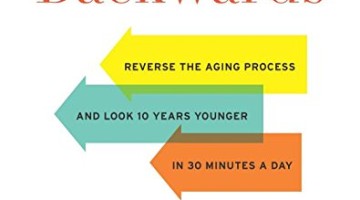Obesity is an ever-increasing problem. Judging by the number of weight loss plans and options people use to constantly try to lose weight, it is also a growing market. But losing weight can feel overwhelming.
Losing weight is not as complicated as you might think. It's not that it isn't difficult, because for many people it is difficult. But it is simple. First you must choose a weight loss plan. It must fit your lifestyle, body type and you must be willing and able to make the necessary changes in your life.
Not every weight loss plan works for everyone. The differences are in the genetic make up of the person, their metabolism and exercise habits. Although the basic tenet of weight loss works for all people, the amount of weight loss over a specific amount of time will not be equal.
The basic way that weight loss plans work is to eat fewer calories than your body burns each day. It's a simple concept. The execution is complicated and thus the reason for so many weight loss options you have to choose from.
When you are looking for a plan that fits your needs there are four important factors to evaluate. The first thing to consider is if the plan is something you can maintain for the rest of your life. This isn't a 'diet' that is associated with deprivation and fatigue, but a lifestyle change that leads to a healthier, thinner more energized you.
Look at the plan and evaluate the eating requirements. Does it include foods that you can manage to purchase, prepare, eat and store? If the weight loss plan includes sea food three times a week and you live in the middle of the mountains, the cost of food will probably soon get prohibitive.
Does the weight loss plan have a proven history? Don't follow the latest craze or because it worked for someone else you know. You would never divorce your husband because after her divorce your neighbor lost 30 pounds - why would you follow the diet plans of friends or neighbors if your goals, body type and lifestyles are different?
The same is true for weight loss plans without a history of success with many types of people. If there isn't a proven track record why would you assume that the plan will work for you?
Does the weight loss plan fit your personal style? Much like the question about being able to maintain the plan for life, does this plan fit your lifestyle? Are you able to maintain your nutritional needs while eating at friends or restaurants or are you willing to make enough changes in the rest of your life to maintain this new weight loss plan.
One of the most difficult lifestyle changes to make is moving from the Standard Western Diet to the life of a vegan. A vegan diet is one that doesn't include meat or milk products. And most vegans also eat only whole foods; which means that only 20% of their food is cooked.
People make that lifestyle change for health reasons and they are usually rewarded with a healthier life and increased energy. But, if you can't manage to make those changes successfully then your motivation will be impacted negatively and you will be destined for failure.
The weight loss plan you choose should also get you excited! Do you enjoy the choices, the plan, the new energy and foods? If you are not excited then the initial movement to a nutritional change will be severely impacted by your lack of energy and enthusiasm.
You should also allow yourself a time to 'fall' off the diet or lifestyle change. Weight loss plans should have a degree of flexibility. People aren't robots or machines. We just are not capable of maintaining a specific routine consistently day after day. The idea isn't to be perfect but to maintain the changes for as many days as you can as the changes become more and more of a habit.








